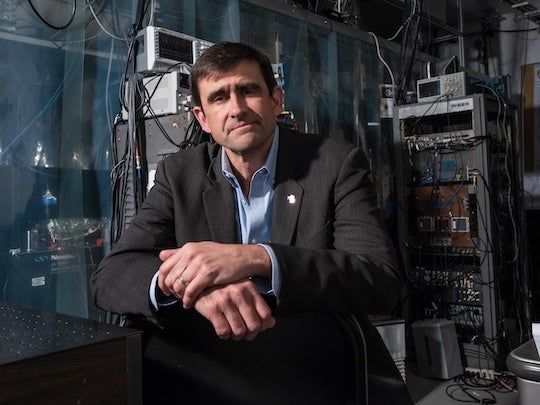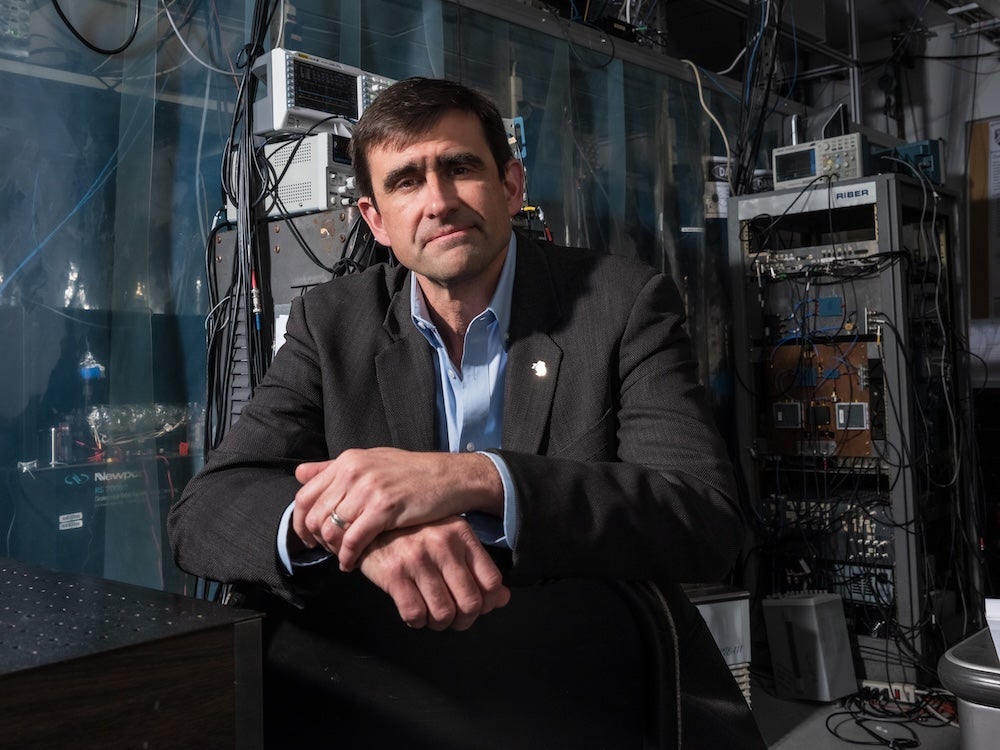Thomas Killian will continue to lead Rice University’s Wiess School of Natural Sciences following his reappointment as dean, effective July 1. Since assuming the role in 2021, Killian has been instrumental in expanding faculty, advancing research initiatives and enhancing student engagement.

Under his leadership, the school has experienced its most significant faculty growth in 15 years, secured increased external research funding and launched new interdisciplinary initiatives.
“Tom’s extensive experience at Rice has been instrumental in building support and advancing the school’s mission,” said Amy Dittmar, the Howard R. Hughes Provost and executive vice president for academic affairs. “His passion for fundamental research, mentorship for graduate students and expanded research opportunities for undergraduates make him an excellent leader.”
Killian’s tenure has positioned Rice at the forefront of global scientific challenges, particularly in biological sciences, materials science, human health and environmental research.
“It is an honor to continue serving the Wiess School of Natural Sciences,” Killian said. “Rice is a place where innovative research and world-class education intersect, and I look forward to building on our success in the years ahead.”
Expanding faculty and research impact
During Killian’s first term as dean, the Wiess School of Natural Sciences increased its tenured and tenure-track faculty 15% from 120 to 138 with a goal of reaching 150 by 2027. These additions include Cancer Prevention and Research Institute of Texas Scholars and researchers who have earned prestigious National Science Foundation CAREER Awards. Faculty have also increased external research funding, surpassing $50 million in awards for the first time in fiscal year 2024.
The school’s collaborative approach fosters cross-disciplinary breakthroughs, strengthening its impact on critical societal challenges.
“The future of science is in collaboration, and we are committed to fostering an environment where faculty and students can work across disciplines to drive innovation,” Killian said.
Enhancing student success and alumni engagement
Beyond faculty and research growth, Killian has made student success a top priority. Initiatives such as the Foundational Course Learning Community and the Russell Shearn Moody Pathway to Research program have expanded undergraduate access to high-quality instruction and hands-on research opportunities.
He has also strengthened alumni engagement through large-scale events like the Great Owl Eclipse weekend, ongoing Science Café series and the Wiess School’s 50th anniversary celebration.
“Our alumni are an integral part of our school’s success, and we are committed to creating opportunities for them to remain connected and engaged with our mission,” Killian said.
A leader in research and mentorship
An expert in atomic physics, Killian remains actively engaged in research and mentorship with five students earning doctorates under his guidance since becoming dean. He is a fellow of the American Physical Society and the American Association for the Advancement of Science.
As he embarks on his second term, Killian said he aims to further advance the school’s research capabilities, faculty recruitment and educational programs, strengthening Rice’s impact in the natural sciences.
“I am excited to continue working alongside our exceptional faculty, students and alumni to push the boundaries of scientific discovery and education,” Killian said. “Together, we will build on our strong foundation and shape the future of the natural sciences at Rice.”
Killian earned his doctorate in atomic physics from the Massachusetts Institute of Technology, focusing on ultracold atomic gases. He joined Rice after completing a National Research Council Postdoctoral Fellowship at the National Institute of Standards and Technology, where he worked in the emerging field of ultracold neutral plasmas. He holds a bachelor’s degree in physics from Harvard University and a master’s degree in physical chemistry from Cambridge University.

